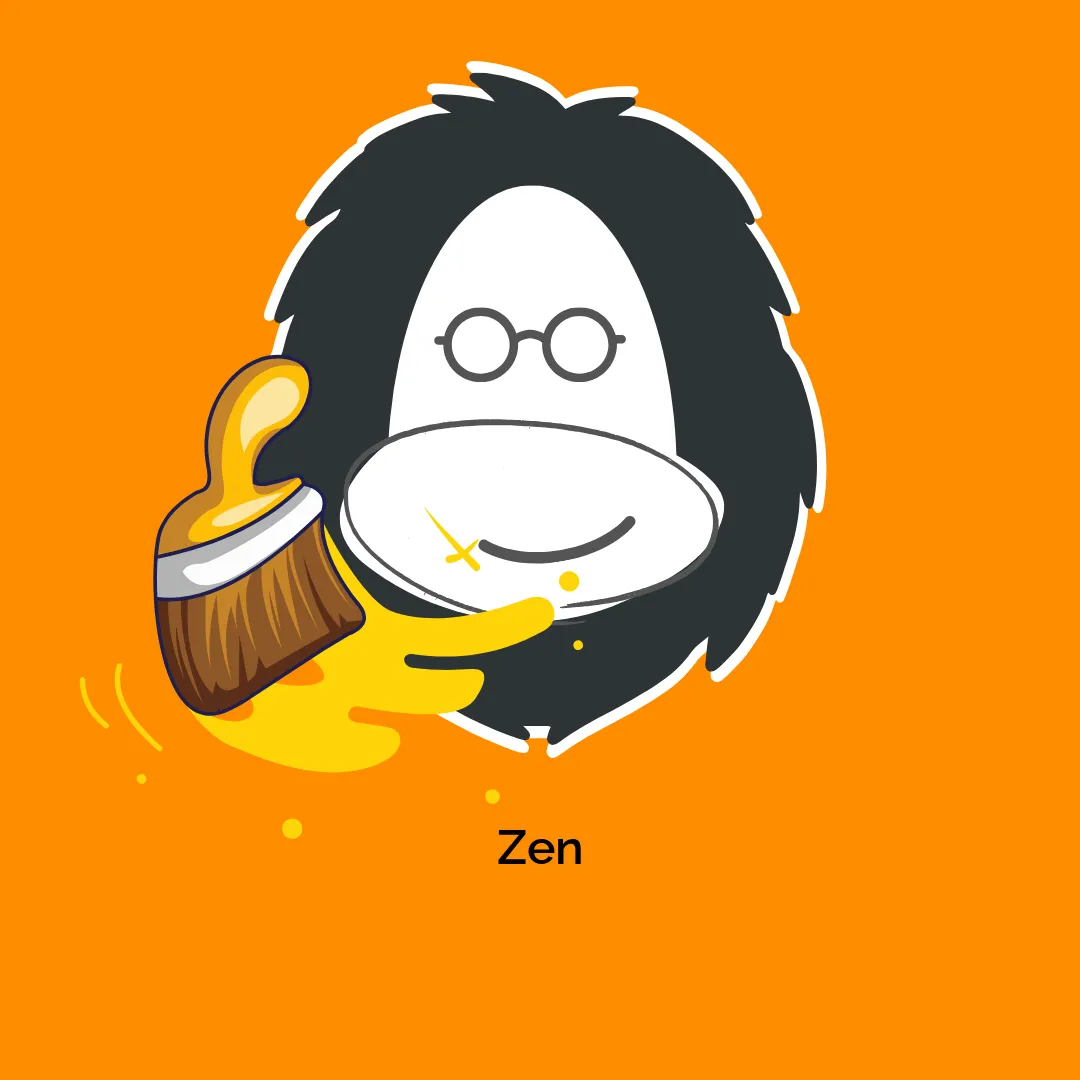Discovering the Essence of Zen
Zen is a term that resonates deeply across various cultures, philosophies, and practices. Whether you are here to delve into the traditional practices of Zen Buddhism, understand its influence on modern life, or simply explore the concept for personal growth, this guide aims to illuminate the manifold dimensions of Zen.
Understanding Zen
At its core, Zen is about realizing the essence of life through meditation and mindfulness. Originating from Buddhism, specifically the Mahayana school in China and later evolving in Japan, Zen emphasizes direct experience over theoretical knowledge. The name itself, derived from the Sanskrit word “dhyana,” which means meditation, encapsulates the practice of inner peace and presence.
Zen is not merely a practice or set of beliefs; it embodies a philosophy of simplicity, focus, and clarity. Proponents of Zen advocate for a life that, while seemingly mundane, is filled with profound experiences and insights. The aim is to discover tranquility in the everyday aspects of life, promoting a state referred to in ancient texts as “satori,” or sudden enlightenment.
The Principles of Zen
Mindfulness
One of the primary tenets of Zen is mindfulness, the practice of being fully present in the moment. This concept encourages individuals to immerse themselves in their experiences rather than becoming distracted or overwhelmed by thoughts about the past or the future. Techniques for cultivating mindfulness include meditation, mindful breathing, and even mindful eating. For instance, when eating, one may become acutely aware of the tastes, textures, and sensations of food, fostering a deeper connection to the experience of nourishment.
Simplicity
Zen also emphasizes simplicity, urging individuals to declutter both their physical spaces and their minds. This principle is famously represented in Zen gardens — minimalistic landscapes that evoke tranquility and contemplation. The practice of simplifying one’s life leads to reduced stress, as fewer possessions and distractions create a more serene environment.
Impermanence
The concept of impermanence, or “anicca” in Pali, is central to Zen philosophy. Everything in life is transient, and recognizing this truth can liberate individuals from attachment and fear. Whether it’s the changing seasons, relationships, or even one’s own thoughts, embracing impermanence allows for a more accepting and peaceful approach to life’s inevitable changes.
Zen Practices
Zazen (Sitting Meditation)
At the heart of Zen practice is zazen, or seated meditation. This practice involves sitting in a quiet space, focusing on breathing, and allowing thoughts to come and go without attachment. Proper posture is essential — a straight back with hands resting on the lap promotes alertness while inviting a sense of calm. As one cultivates zazen into their routine, the benefits can unfold dramatically, leading to heightened awareness and serenity.
Kinhin (Walking Meditation)
In contrast to the stillness of zazen, kinhin is a walking meditation that encourages mindfulness in movement. Practitioners walk slowly in a circle or a straight line, synchronizing each step with their breath. This practice is an excellent way to integrate mindfulness into daily activities, fostering a greater sense of connection to the body and surroundings.
Koans
Another fascinating aspect of Zen practice is the use of koans — paradoxical anecdotes or riddles that challenge logical reasoning. These are used to provoke xalamination and insight rather than dictate answers. A well-known koan is, “What is the sound of one hand clapping?” The purpose of such riddles is to break free from conventional thinking patterns, leading to greater understanding and enlightenment.
Zen in Daily Life
Integrating Zen principles into daily life can yield not only a more peaceful existence but also improved mental clarity. Here are a few ways to infuse Zen into your routine:
Mindful Mornings
Start your day with mindfulness. Rather than diving straight into tasks, dedicate the first few minutes after waking up to meditation or quiet reflection. Observe your breath, set intentions for the day, or simply appreciate the silence before the hustle and bustle begins.
Conscious Consumption
Whether it’s food, media, or material possessions, practicing conscious consumption means making mindful choices about what you bring into your life. This reduces clutter, encourages healthier decisions, and promotes more meaningful engagement with your surroundings. For instance, choosing to cook a meal from scratch fosters a connection with the food and enhances gratitude for nourishment.
Nature Connection
Nature has long been intertwined with Zen philosophy. Spending time outdoors can invigorate the senses and unveil the beauty in simplicity. Whether it’s a walk in the park or tending to a garden, engaging with nature can serve as a meditation, grounding you in the present and allowing you to observe the rhythms of life.
Zen and Modern Living
As society becomes more fast-paced and technology-driven, the principles of Zen have found new relevance. Many individuals are turning to Zen to counter the overwhelming nature of modern life. Practicing digital detox, carving out quiet moments in our daily routines, and embracing solitude are all aspects of Zen that help restore balance.
Zen in Workplaces
The concept of Zen is increasingly entering workplace cultures with practices that enhance wellbeing and productivity. Companies are adopting mindfulness programs, encouraging breaks for meditation, and promoting environments that foster simplicity and focus. When applied in a professional context, Zen can lead to better teamwork, enhanced creativity, and reduced stress levels.
Community and Connection
Moreover, the communal aspect of Zen cannot be overlooked. Whether you choose to join a Zen center or participate in online meditation groups, the sense of community and shared practice creates an environment of support and encouragement. Engaging with others on a similar path amplifies your experience and understanding of Zen.
Savoring Zen Through Arts and Culture
Zen has also significantly influenced various art forms, from traditional Japanese tea ceremonies to contemporary abstract art. Artists have long embraced the principles of Zen, creating works that convey simplicity, tranquility, and a deep connection to nature. This artistic expression serves as a reminder of the beauty and peace that can be found in minimalism.
Zen Gardens and Architecture
Consider the serene beauty of Zen gardens, designed thoughtfully to evoke contemplation and peace. The careful placement of rocks, plants, and sand symbolizes natural landscapes and offers a space for reflection. Zen architecture, characterized by simplicity and harmony with nature, further embodies values of Zen, encouraging tranquility and balance.
The Benefits of Embracing Zen
Adopting a Zen practice is not merely beneficial for spiritual growth but offers numerous mental and physical health advantages as well. Some prominent benefits include:
-
Stress Reduction: Engaging in meditation and mindfulness practices can dramatically decrease stress levels. By focusing on the present moment, you learn to let go of worries about the past or future.
-
Improved Focus and Clarity: Regular mindfulness practice cultivates a heightened awareness, allowing for clearer thoughts and improved concentration in daily tasks.
-
Enhanced Emotional Wellbeing: Zen practices encourage greater emotional regulation, fostering a balanced mindset that can positively influence relationships and overall happiness.
-
Cultivation of Resilience: Understanding and accepting impermanence fosters resilience, enabling individuals to navigate challenges with a sense of grace and acceptance.
-
Increased Creativity: As Zen encourages breaking free from habitual thought patterns, it opens the door for creative expression and innovative thinking.
Incorporating the principles of Zen into one’s life is about cultivating a deeper sense of connection to oneself and the universe. Whether through the practice of mindfulness, engagement in nature, artistic expression, or community involvement, the essence of Zen offers a pathway to a balanced, fulfilling life. By embracing Zen, one can not only experience personal transformation but also contribute positively to the collective consciousness of society.
Download Zen Themes for free
Certainly, downloading Zen for Free on OrangoGPL is viable and 100% within the law.
Actually, even downloading a cracked Zen is law-abiding, as the license it is distributed under is the General Public License, and this license allows the holder its free modification, distribution, and resale.
So, there’s no cause to be concerned: If you were seeking to buy Zen cheaply or, directly, to download Zen Themes nulled to have it 100% free, on OrangoGPL, you can do it easily and legally.
Download Zen GPL: The option for entrepreneurs beginning their journey
We don’t care what you call it: Buying Zen on resale, download Zen Themes GPL, download Zen without license or download Zen nulled.
It is completely within the law and something more than necessary for any entrepreneur just starting.





Reviews
There are no reviews yet.